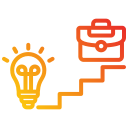Build Your Technical Foundation
Begin with a friendly language like Python or JavaScript. Learn variables, functions, loops, and data structures through tiny, purposeful projects. Focus on finishing small apps, like a to-do list or API fetcher, and commit code frequently to GitHub to track progress and reflect.
Build Your Technical Foundation
You do not need a degree to grasp core ideas. Understand time complexity intuitively, practice using arrays and hash maps, and learn when to choose a list over a dictionary. These fundamentals sharpen problem solving, making interview questions less intimidating and everyday debugging far more methodical.
Build Your Technical Foundation
Learn to navigate folders, search logs, and automate repetitive tasks with shell scripts. Practice Git branching, meaningful commit messages, and pull requests. These habits impress teammates, reduce mistakes, and make collaborating on open-source or class projects smoother from day one. Subscribe for weekly CLI drills.







